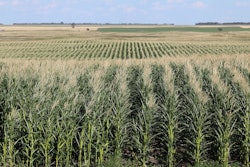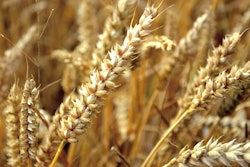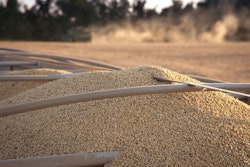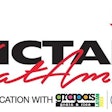
Brazil Crop Progress
- Brazilian soybean planting is 6% complete nationwide, the slowest since 2010, and compares to the average of 17%.
- For the states of Mato Grosso, Mato Grosso do Sul, and Paraná (see Chart of the Day below), planting remains historically slow.
- Total first corn crop planting has fallen slightly behind average at 46% complete versus 51% average over the last five years.
- Deral reported 86% of Paraná’s first crop corn is planted which is up from 78% last week.
- Early corn crop ratings are 83% good to excellent vs 88% last year.
- The state’s production is forecast at 3.2 million tonnes vs 3.5 million last year, making up approximately 12% of Brazil’s total.
- The Brazilian weather forecast is for scattered rainfall into this weekend before the likely start of a wet season.
FBN’s Take On What It Means: Significant improvement in soil moisture conditions is expected starting next week and will likely speed the planting pace. Brazil’s soybean harvest reaches 20% on average by around February 15. This year’s slow start to planting will push widespread harvesting into early March this year. This will delay exportable supplies and could potentially affect yields. Later bean planting may also delay second crop corn seeding, pushing its maturity further into the dry season.
Brazil Temporarily Suspends Import Tariffs on Key Items
- As expected, Brazil removed its import tariffs on corn, soybeans, soymeal, and soyoil from countries outside the Mercosur bloc.
- The import tariff waiver applies to soybeans and products until January 15, 2021.
- For corn imports, the zero-tariff waiver is in place until March 31, 2021.
- According to an attaché report, the prospects of US exports to Brazil are slim due to regulatory and logistical challenges as well as price spreads.
- The government cited that record high prices for corn and soybeans have pushed up food prices and are fueling inflation that helped drive the decision.
- The attaché report leaned towards an extension of the corn tariff waiver.
FBN’s Take On What It Means: While the attaché report cited several obstacles for US products making their way into Brazil, FBN is a bit more optimistic simply because Brazil needs the additional supplies. There are opportunities for other exporters as well, but the US is positioned well due to supply availability. Furthermore, with Brazil needing additional supplies, it is a supportive element for commodity markets in general.
FBN Market Advisory services are offered by FBN BR LLC, dba FBN Brokerage, FBN BR and FBN Market Advisory (NFA ID: 0508695)
The risk of trading futures and options can be substantial and may not be suitable for all investors. Past performance is not necessarily indicative of future results.
This is not an offer or solicitation in any jurisdiction where we are not authorized to do business or where such offer or solicitation would be contrary to the local laws and regulations of that jurisdiction, including, but not limited to, persons residing in Australia and Canada.














